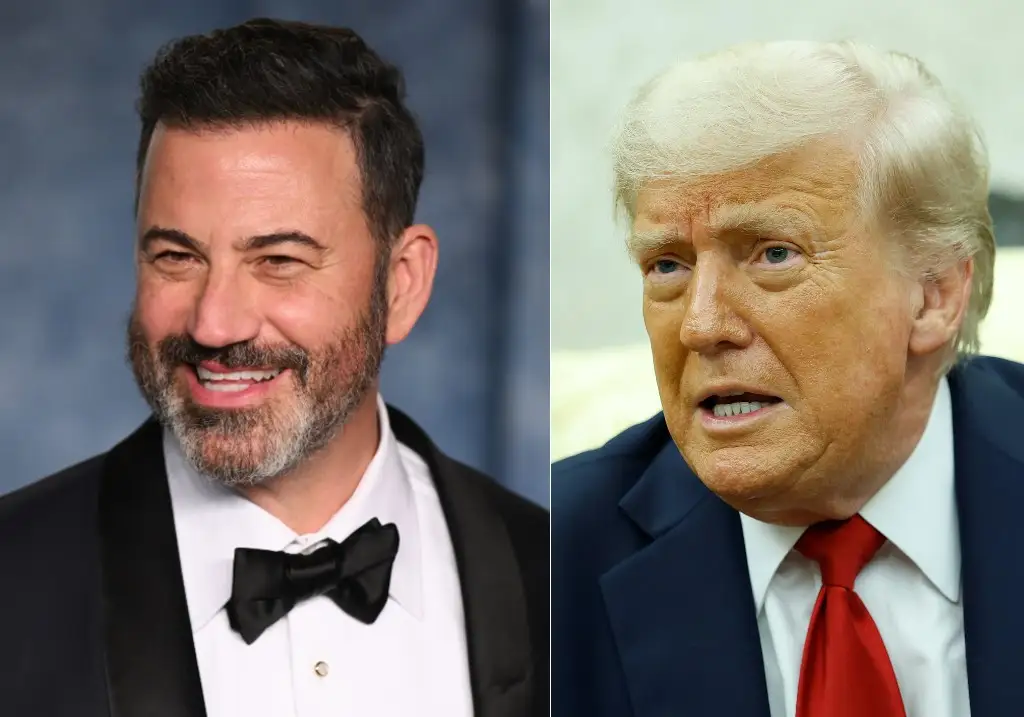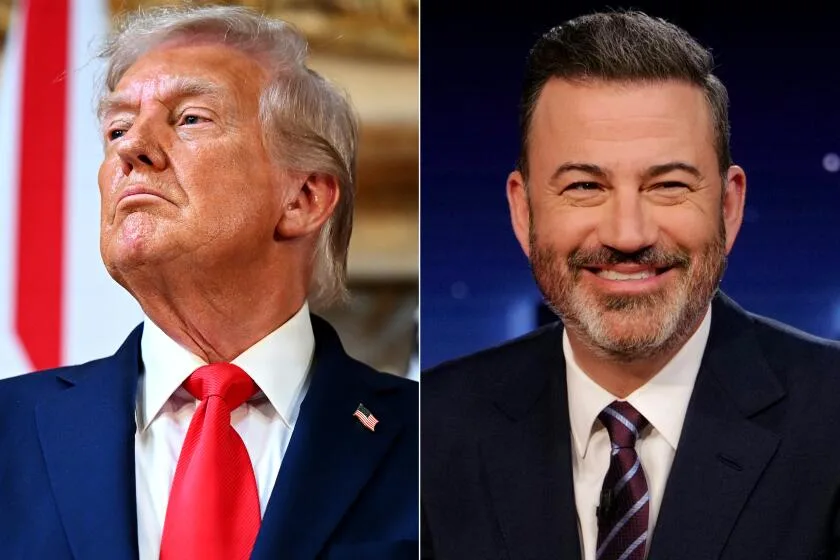Jimmy Kimmel Said He Might Be on Trump’s “Enemy List” After 2024 Election but Vowed to Keep His Voice Alive Before Ratings Collapse
Jimmy Kimmel has built his career on late-night television by mixing humor with sharp political commentary, often zeroing in on the issues and people dominating American life. But when Donald Trump won reelection in 2024, Kimmel reportedly looked at his own future with a heavy dose of honesty. According to reports, he predicted his own “demise” the very next day, convinced that being one of Trump’s most outspoken critics might make him a target on the former president’s so-called “enemy list.” For Kimmel, who had spent years taking direct aim at Trump’s policies and persona during his nightly monologues, the victory represented not just another political shift in Washington but also a potential turning point for his own career.
Those close to him say Kimmel felt the weight of the moment. He had been one of the few late-night hosts who consistently leaned into political humor and was never shy about saying what he believed, even when it risked alienating viewers. After the election results rolled in, he reportedly told his team that maybe it was time to give up, that perhaps his role had run its course now that Trump had secured a second term. The thought was less about surrendering his platform entirely and more about the very real fear that his voice might no longer carry the same weight in a political climate that had already proven polarizing.

But then something shifted. Instead of backing away, Kimmel vowed to press forward. He recognized that, win or lose, voices like his mattered. As he put it, being on air and continuing to speak out was a “very important” responsibility, especially in times when division felt deeper than ever. That commitment to staying visible, staying loud, and staying relevant defined his mindset in the days that followed. Even if he sometimes questioned whether people were still listening, he understood the value of trying. For the millions who tuned in each night, even just a few laughs in the middle of chaos mattered.
Still, reality eventually caught up with him. Reports indicate that his ratings began to slip after the election, a trend that has mirrored challenges across the late-night industry. Fewer people are watching live television these days, and the audiences that once relied on late-night monologues for comedic takes on the news are now more likely to scroll through clips online or find commentary elsewhere. Kimmel’s struggle wasn’t just about politics—it was about an industry facing enormous change. Yet for him, the timing of the decline seemed to confirm his worst fears, as if he had predicted his own fall before it even arrived.

For longtime fans, the story feels bittersweet. Kimmel has always brought a sense of humanity to his show, mixing heartfelt moments about family or social issues with biting satire. His jokes about Trump were often among the most talked about, sparking both laughter and outrage in equal measure. To see him acknowledge openly that he felt defeated the day after the election, and yet still find the resolve to keep going, says something about his character. It shows that beneath the laughter is someone deeply aware of the stakes, not just for himself but for the people who rely on his platform.
What this moment really highlights is the fragile balance late-night hosts must walk. They’re entertainers, yes, but they’re also cultural commentators who sometimes carry the responsibility of reflecting and even shaping public opinion. Kimmel’s fear of being silenced or sidelined after Trump’s victory reveals just how heavy that role can feel. At the same time, his decision to keep his voice alive, despite the ratings challenges, underscores his belief that saying something—even if fewer people are listening—is better than saying nothing at all.
Kimmel’s future remains uncertain, but one thing is clear: his willingness to confront his own doubts and still choose to stand on stage night after night speaks volumes. In an era when media is shifting faster than ever, when politics and entertainment feel inseparably tangled, he represents the complicated space where humor meets conviction. And whether audiences tune in live, catch a clip the next morning, or just hear about it secondhand, his presence remains part of the national conversation. That, in the end, may be what matters most.


